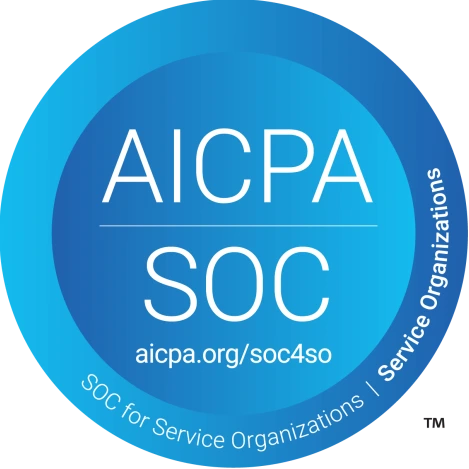Frequently Asked Questions
We have specifically curated this FAQ section to help you quickly find answers to some of the most common questions about our products and services. Your experience is our priority, and this FAQ is just one way to ensure that you have the required information.
What is OneBanc?
OneBanc is a neobank, building the economic infrastructure for the workforce of India. The idea of OneBanc started when a young girl asked Vibhore, a serial entrepreneur, why the money in her piggybank never grew. Adopting the philosophy of #DemandMore, OneBanc connects enterprises, banks, and HR Tech platforms to enhance value for all stakeholders. The core team has proven their vision and executive prowess in CoCubes - a complete assessment solution for students and institutes, which was acquired by Aon. We are now building the squad to enable FinTech revolution of the future.
What is a neobank?
It is a digital bank that operates exclusively using online banking without having a physical presence. A neobank is a fintech firm that provides digital and mobile-first banking solutions, payments and money transfers, money lending etc.
Who is eligible to use OneBanc services?
Working professionals with minimum CTC of 4 LPA are eligible to use OneBanc services.
Do I need to be an Indian resident?
Yes, currently you need to be an Indian resident to avail the benefits of OneBanc.
Does OneBanc have an iOS application?
Yes, we do have an iOS application.
Is my money safe with OneBanc?
All money deposited through OneBanc is secure and safe as it lies with our RBI Licensed Partner Banks. To top it off, we follow the requirements of the Payment Card Industry Data Security Standard (we are PCI DSS 4.0 certified). The sensitive details are not present on the card to ensure its safety if it is lost or mishandled.
What is your security policy?
Our top priority is protecting our members. We use 128-bit AES encryption, access control, and security processes to ensure your data is always safe with us. If you notice an unauthorized card transaction, you can disable transactions on your card immediately from the settings section of the app to prevent any unauthorized card transactions. You can Read More about our Security Policy here.
Does OneBanc charge any fees?
It depends. We will pre-emptively inform you of any charges that may be applied.
How do I get access to OneBanc?
It's simple, just speak to your HR team. In case your organization hasn't signed up yet, they can reach us at hi@onebanc.ai
Can anyone open a bank account through OneBanc without a PAN or Aadhaar card?
The Reserve Bank of India (RBI) mandates the compulsory submission of a PAN card and Aadhaar card for the purpose of account verification. For the opening of a bank account, it is imperative to provide a physical PAN card and ensure that the Aadhaar number is linked to a mobile number.
My PAN card is not being accepted?
Please make sure that you are using a valid individual PAN card. If you're still facing issues, there could be a server error and you can retry after some time.
What is Video KYC?
Video KYC enables you to open a bank account instantly. After entering your details, you will have the option to get on a video call with our Partner Bank's executive to complete your KYC process. The video call will ensure you no longer need to visit the branch to complete your KYC.
What are the different steps involved in video KYC process?
Our Partner Bank's executive will guide you through the process & carry out the basic checks through video interaction. Just keep your original PAN card, a blank sheet of paper, and a black or blue pen handy.
Is Aadhaar required for video KYC?
Aadhaar is not required during the Video KYC process. Just keep your original PAN card, a blank sheet of paper, and a black or blue pen handy.
I don't have any current address proof. Will that be an issue during the video KYC process?
You would not need to show your current address proof. However, you can enter your communication address during the account opening process. Your account will be opened basis the address shared on Aadhaar and your welcome kit will be delivered on the same.
What specific permission access do I need to allow for video KYC?
You will need to provide access for:
- Location
- Microphone
- Camera
My phone isn't getting registered. What do I do?
There could be a couple of reasons why this is happening. Here are some common ones:
- Your phone might not have the right mobile number because the SIM card isn't in the same device you're trying to sign up with. Double-check to make sure your SIM card is in the same phone.
- If you've got a dual SIM phone, you might have picked the wrong SIM card. Make sure you've selected the correct one.
- It's possible you're in an area with poor network coverage. If that's the case, just wait until you're in a spot with a stronger signal and then give it another shot.
When will my account become active?
Your account will be active within 48 hrs of successfully completing the Video KYC process.
Who issues the AI Cards?
AI card is issued by our RBI Licensed Partner Banks.
When do I receive my card after I open my salary account?
Our RBI Licensed Partner Bank will start the process of dispatching your personalized card as soon as you open a Full KYC digital salary account. Your card is usually shipped within 1 business day & may take up to 7 business days to arrive at your Aadhaar address. Do reach out to us at hi@onebanc.ai if you have not received your card within 7 business days of opening your salary account.
Can I use this card in other countries?
Yes, you can enable the international transactions and enjoy using the card for international transactions.
What happen if I miss my card delivery?
If you happen to miss the initial card delivery, the delivery agent will make two additional attempts to deliver the card to your specified address.
Roles and responsibilities of NPCI
- NPCI owns and operates the Unified Payments Interface (UPI) platform.
- NPCI prescribes rules, regulations, guidelines, and the respective roles, responsibilities, and liabilities of the participants, with respect to UPI. This also includes transaction processing and settlement, dispute management and clearing cut-offs for settlement.
- NPCI approves the participation of Issuer Banks, Payment Service Provider (PSP) Banks, Third Party Application Providers (TPAP) and Prepaid Payment Instrument Issuers (PPIs) in UPI.
Roles and responsibilities of PSP Bank
- PSP Bank is a member of UPI and connects to the UPI platform for availing UPI payment facility and provides the same to the TPAP which in turn enables the end user customers/ merchants for UPI transactions.
- PSP Bank either through its own app or TPAP's app, onboards and registers the end user on UPI and links their bank accounts to their respective UPI ID.
- PSP Bank is responsible for authentication of the end user customer at the time of registration of such customer, either through its own app or TPAP's app.
Roles and responsibilities of TPAP
- TPAP is a service provider and participates in UPI through PSP Bank.
- TPAP is responsible to comply with all the requirements prescribed by PSP Bank and NPCI in relation to TPAP's participation in UPI.
- TPAP is responsible to ensure that its systems are adequately secure to function on the UPI platform.
Dispute Redressal Mechanism
- End users can raise a complaint with respect to a UPI transaction, on the PSP app/ TPAP app.
- End users can select the relevant UPI transaction and raise a complaint in relation thereto.
- A complaint shall be first raised with the relevant TPAP in respect to all UPI related grievances/ complaints of the end user customers onboarded by the PSP Bank/ TPAP (if the UPI transaction is made through TPAP app). In case the complaint/ grievance remains unresolved, the next level for escalation will be the PSP Bank, followed by the bank (where the end user customer maintains its account) and NPCI, in the same order. After exercising these options, the end user customer can approach the Banking Ombudsman and/ or the Ombudsman for Digital Complaints, as the case may be.













